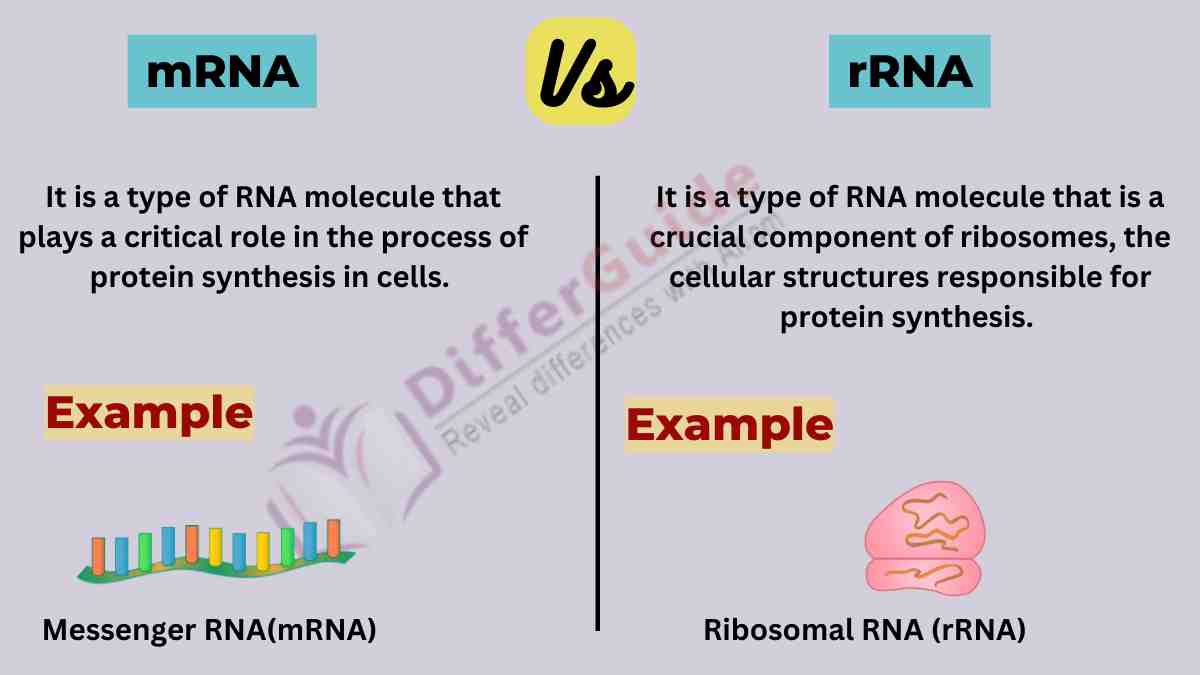The primary difference between mRNA and rRNA is that, mRNA carries the genetic information from DNA to the ribosomes, whereas rRNA is a structural and functional component of the ribosomes themselves.

In this article, we will discuss the main difference between mRNA and rRNA and also give a deep inside of both of them.
What is mRNA?
mRNA stands for messenger RNA. It is a type of RNA molecule that plays a critical role in the process of protein synthesis in cells. mRNA carries the genetic information encoded in DNA from the cell’s nucleus to the ribosomes, where proteins are synthesized.
What is rRNA?
rRNA stands for ribosomal RNA. It is a type of RNA molecule that is a crucial component of ribosomes, the cellular structures responsible for protein synthesis. Ribosomes are composed of rRNA and proteins, and they are found in the cytoplasm of cells.
mRNA vs rRNA
The key difference between mRNA and rRNA is given below:
| Characteristic | mRNA | rRNA |
| Function | Carries genetic information from DNA to the ribosomes for protein synthesis | Plays a structural role in the formation of ribosomes and catalyzes protein synthesis |
| Location | Found in the nucleus and cytoplasm of cells | Found primarily in the cytoplasm and associated with ribosomes |
| Length | Typically shorter in length compared to rRNA | Generally longer in length compared to mRNA |
| Stability | Relatively unstable and short-lived, degrades quickly | Highly stable and long-lasting |
| Types | Different types of mRNA are transcribed from specific genes and carry instructions for different proteins | Multiple types of rRNA (such as 18S, 28S, 5.8S, and 5S) combine to form the structure of ribosomes |
| Modification | Undergoes post-transcriptional modifications, including splicing and addition of a 5′ cap and 3′ poly-A tail | Generally does not undergo significant post-transcriptional modifications |
| Protein-coding | Can be protein-coding or non-coding, depending on the type of mRNA | Non-coding and does not encode proteins |
| Abundance | Multiple copies of mRNA molecules can exist for a single gene | Relatively fewer copies of rRNA molecules compared to mRNA |
| Regulation | Expression levels of mRNA are tightly regulated to control protein production | rRNA levels are relatively constant and not as tightly regulated |
| Role in translation | Serves as a template for protein synthesis during translation | Forms the core structure of ribosomes, where protein synthesis occurs |
